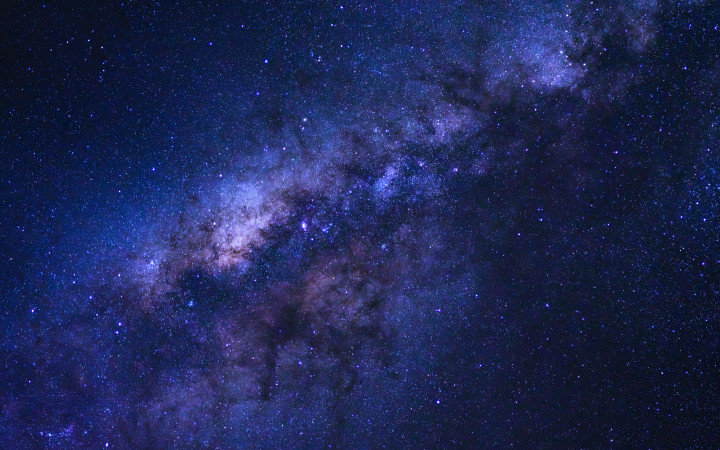Today’s Wonder of the Day was inspired by Ronan. Ronan Wonders, “Is Space Infinite?” Thanks for WONDERing with us, Ronan!
Do you ever look up at the night sky? On a clear night, you may see thousands of stars from Earth. And, of course, there’s much more than just stars up there! Space is full of planets, comets, asteroids, and other celestial bodies.
Sometimes, thinking about all that space up there makes people feel small. After all, the distance from Earth to the Sun alone is over 92 million miles (150 million kilometers). The distance to other stars and other galaxies may seem infinite.
Is space infinite? That’s one question science hasn’t quite answered yet. In fact, asking different scientists that question will often result in different answers. There is evidence to support explanations for both an infinite and finite space.
Whether or not space is infinite is just one question scientists are still working to answer about the universe we live in. For example, they don’t even know how much of the universe humans can perceive. Instead, they study the observable universe. That’s the portion that human beings can see and study from Earth.
Scientists also know the approximate size of the observable universe—92 billion lightyears—but not its exact shape. Most agree that it is round—or at least that it appears to be from Earth. However, the universe’s three–dimensional shape is still up for debate. It may be flat, like a sheet of paper. It may also be shaped like a sphere, a saddle, or a donut.
Experts may not know whether space is infinite, but they do know that the universe is growing. It’s been expanding since the Big Bang itself, about 13.8 billion years ago. And scientists recently found that it may be doing so at a faster pace than they previously thought.
This expansion has long been explained by what experts call “dark energy.” Scientists don’t fully understand dark energy, but they continue to study it. In 2021, researchers found that the universe is growing at least eight percent faster than can be explained by the presence of dark energy. What else is influencing this expansion? Experts are still working to find out.
Have you ever WONDERed just how many objects are out there in the great expanse of space? Estimates say the universe holds between 200 billion and two trillion galaxies. Inside each galaxy, there are likely 100 billion stars. And orbiting around each star? Between one and ten planets.
Of course, that’s just in our universe. What if other universes exist? Some believe this is possible. If proven true, it would vastly change the human understanding of space.
Do you think space could be infinite? The next time you stargaze, think about just how many objects are up there. Which one would you most like to see up close, if you could?
Standards: NGSS.ESS1.A, NGSS.ESS1.B, CCRA.R.4, CCRA.L.3, CCRA.L.6, CCRA.R.10, CCRA.R.1, CCRA.L.1 CCRA.W.3, CCRA.L.2 NCAS.A.1, NCAS.A.2, NCAS.A.3




